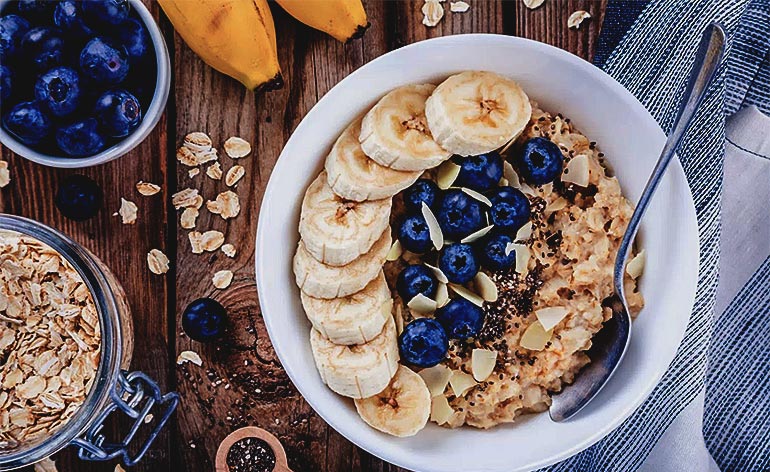
Fibre is an important part of a healthy diet and one that is often overlooked. There are two categories of fibre: soluble and insoluble, and both are only found in plant foods. Soluble fibre blends with water and turns into a gel-like substance that can be digested by the body whereas insoluble fibre is not, so travels through the gut unaltered. Both are important parts of a healthy diet. Read on to discover our Top 5 Health Benefits of Dietary Fibre!
1. Lowers cholesterol
Soluble fibre ‘engulfs’ cholesterol particles in your gut and gets them out of your body rather than you absorbing them. A study performed on rats showed that those given high fibre samples had the lowest cholesterol readings – this was for both groups fed on a high fat diet and those that were not. So, what this means is that consuming enough fibre will benefit anyone, (even those who eat large amounts of red meat etc) no matter how healthy your diet is.
2. Regulates blood sugar levels
Soluble fibre helps reduce the body’s absorption of carbohydrates resulting in less insulin spikes and a more regular blood sugar level. One study found that an increased intake of soluble fibre improved insulin sensitivity in both non-diabetic and diabetic individuals.
3. Good for weight loss
Since soluble fibre helps keep food in your gut for longer, you feel fuller for longer, this leads to eating less overall. Ideal for helping with weight loss or maintaining a healthy weight. One study found that an increase of 14g per day of fibre resulted in a 10% decrease in food consumed and an average weight loss of 1.9 kg in 3.8 months. These results were determined when the fibre was from a naturally occurring food source as opposed to supplements – no cheating with this one!
4. Prevents cancer
Many studies have shown that an increased fibre intake results in a reduced risk of cancer. Some concluded that this is because insoluble fibre helps speed up the time that waste is present in the body meaning there is less time for the body to absorb the carcinogens (cancer causing substances) present. When bacteria break down the fibre, a compound known as butyrate is released which may inhibit the growth of tumours in the colon.
5. Promotes a healthy gut
As previously mentioned, insoluble fibre is not digested by the body so it helps ‘push out’ waste which reduces the chance of it causing damage to the colon. Prebiotics are a type of fibre and these stimulate the growth of healthy bacteria in the gut.
Food sources:
| Soluble Fibre | Insoluble Fibre |
|---|---|
| Fruits, grains (such as oats, barley and rye), beans and pulses, root vegetables (carrots and potatoes etc) | High fibre breakfast cereals, wholemeal carbohydrates (such as bread, pasta and rice), vegetables and potato skins, nuts and seeds |
Recommended intake:
| Age (years) | Recommended intake of fibre |
|---|---|
| 2-5 | 15g per day |
| 5-11 | 20g per day |
| 11-16 | 25g per day |
| 17+ | 30g per day |
Source: British Nutrition Foundation
After looking at the various studies regarding fibre intake it appears everyone can benefit from having more fibre in their diet – but the benefit comes from fibre from natural food sources, not supplements. There’s no substitution for this important nutrient! Just remember that for fibre to be the most effective, you need to be hydrated, another reason to drink ample water! Want to share something about how fibre has helped you with your health or the foods its contained in? Let us know below or @ KeepFitKingdom !









